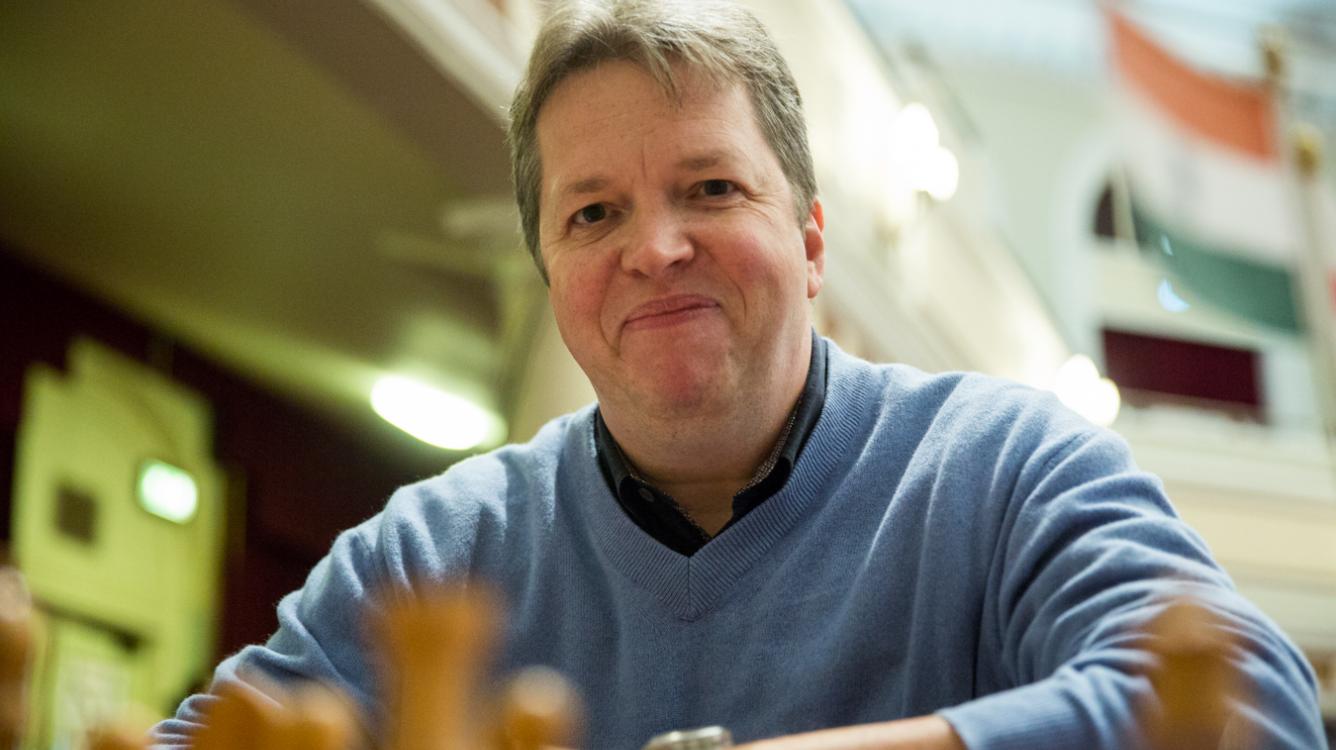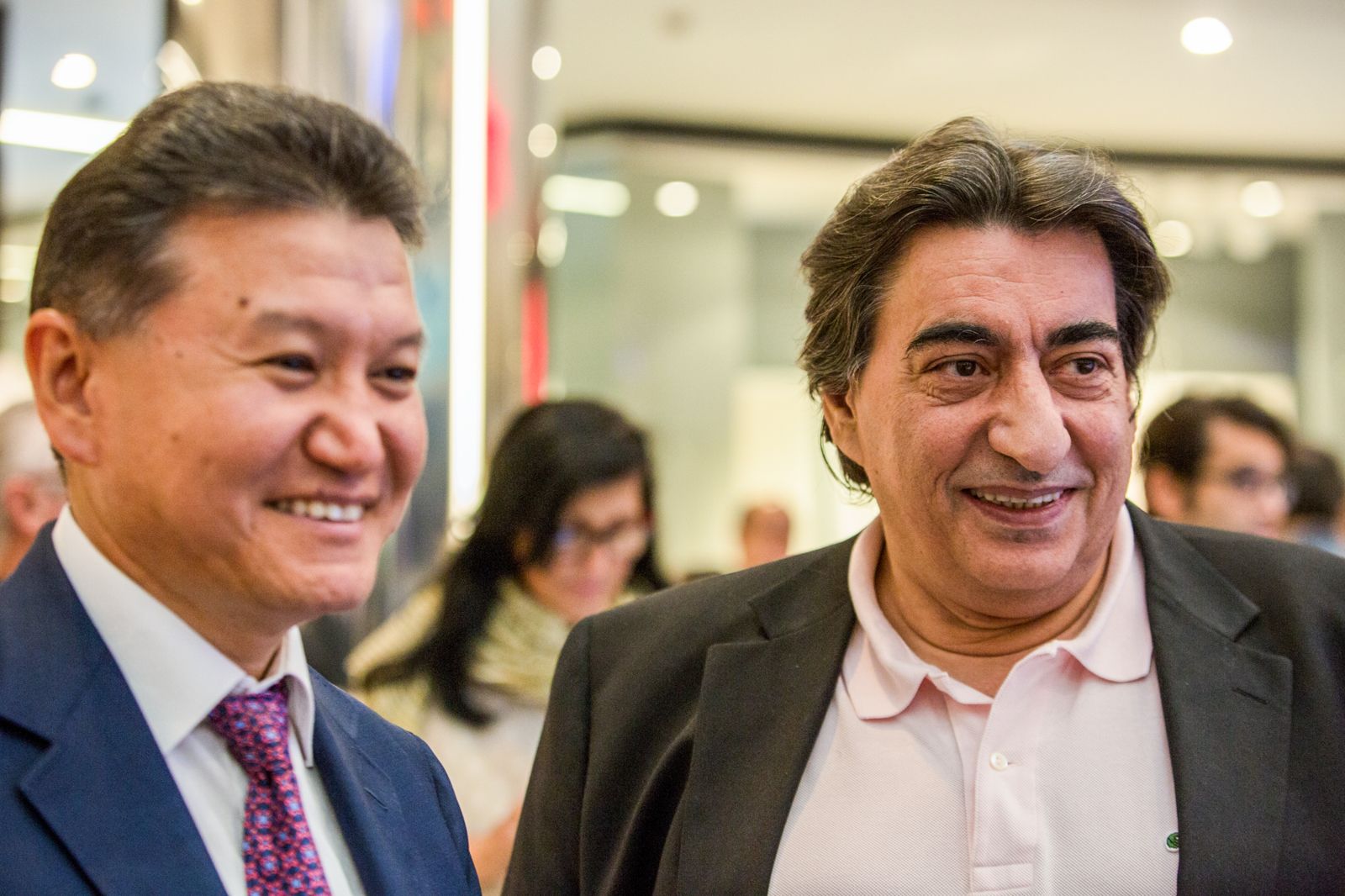
Nigel Short To Run For FIDE President
Nigel Short is running for FIDE president.
It had been rumored for a few days, and today Short confirmed to Chess.com that he is the third candidate, besides the incumbent Kirsan Ilyumzhinov and the current deputy president Georgios Makropoulos.
Short (52) has been a grandmaster since 1984, and famously played a world championship match with Garry Kasparov in 1993. He is a known critic of the current FIDE leadership in his tweets and his columns in New in Chess magazine.
Short told Chess.com that he has been thinking about this decision for a few months. What finally convinced him? "That the chess world deserves a better choice," said Short. "The other two candidates have been in office for too long."
This means that, unlike in the last few elections, it will be a three-horse and not a two-horse race. "This is a completely different story," said Short.
He said it "won't be long" before he'll announce his team and the (financial) support he is getting.
Asked about the latter, Short said:
"One of things which has bedeviled FIDE is money politics. I want to move away form the idea that you have to have a lot of money in order to be a good FIDE president. It was not the case with Max Euwe or Fridrik Olafsson or even Florencio Campomanes. But he began the sort of change to money politics. I actually think Kirsan [Ilyumzhinov] is short of money and Makro[poulos] also."
Short said there are "all sorts of structural things" he wants to change and that it's a "giant project." He went into detail about one thing: FIDE's cooperation with Agon, the company that runs events in the world-championship cycle.
Short:
"I want to see end of the Agon contract. It has brought little or no benefit to FIDE and I believe has cost FIDE a huge amount of money in lost opportunities. Foregone income."
As it turns out, there's already something that Makropoulos and Short have in common. The latter also wants term limits, and agrees eight years should be the maximum for a presidency.

Ilyumzhinov and Makropoulos, Short's opponents in the elections on October 3. | Photo: Maria Emelianova/Chess.com.
One issue is that Short will be seeking the endorsement of the English Chess Federation, which now has IM Malcolm Pein as its delegate. Pein and Short get along fine, but recent developments suggest a potential clash.
Pein, who is also the organizer of the London Chess Classic, has been quite close with Makropoulos in the last few months and helped FIDE to get the Saudi Chess Federation to host the World Rapid and Blitz Championship in December 2017.
According to Short, it is "strongly rumored" that Pein will be the Deputy President on the ticket of Makropoulos:
"I’ve known Malcolm since 1973. He is a friend of mine. He has done a lot of good things for chess. But I think he views getting in bed with Makro as his route to the FIDE presidency. My view is that Makro has been, if not the main problem, certainly absolutely instrumental in the rottenness with FIDE. He's been the enabler, the facilitator for Kirsan."
A month ago Makropoulos announced his candidacy for FIDE president after having served as deputy president since 1996. He confirmed to Chess.com the cooperation with Pein: "Yes, we are working closely with him. Malcolm understands, as many people understand today, that we need a solution and Kirsan is not the solution.”
Ilyumzhinov had announced his candidacy to Chess.com exactly one year earlier. Last Sunday in Sochi he took his first major hurdle when the Russian Chess Federation endorsed him, which was not automatic at all.
In February, when Ilyumzhinov tried to get support from his federation, RCF President Andrey Filatov had postponed this decision to May. At that point, Anatoli Karpov was still considering to run as well.
The FIDE presidential elections are taking place on October 3 as part of the general assembly, held in Batumi alongside the Olympiad.
Correction: an earlier version of this article stated that with three candidates instead of two a majority isn't needed anymore to win. However, FIDE's electoral regulations state:
For all elections a majority of the votes cast, not counting abstentions, shall be required. If there is a tie, the voting is repeated until the tie is broken. If three or more persons are nominated for the same offices or office, the candidates that receive 50% plus one of the votes cast, are elected on the first ballot. Thereafter, the candidates receiving most votes on the second ballot are elected to the vacant number of offices. If there is a tie, the voting is repeated until the tie is broken.


